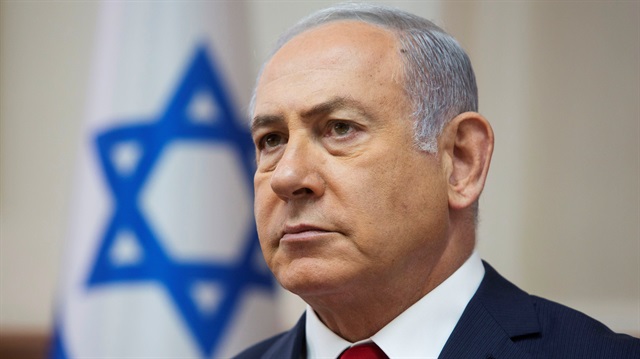

Israeli Prime Minister Benjamin Netanyahu
During trip to US, Netanyahu hopes to discourage Moscow from giving advanced air-defense system to Syria
Israeli Prime Minister Benjamin Netanyahu will try to discourage Russia from providing Syria with an S-300 air-defense system during his upcoming visit to the U.S., according to Israeli media reports.
Netanyahu is scheduled to attend the 73rd session of the UN General Assembly, which is currently underway in New York.
On Monday, Israel’s Channel 2 reported that Netanyahu would attempt to persuade U.S. President Donald Trump to offer Russian President Vladimir Putin a “diplomatic initiative” in exchange for the latter refraining from delivering the S-300 system to Syria.
Last week, several Israeli F-16s entered Syrian airspace before striking military targets in Syria’s northwestern Latakia province.
When Syria’s Russian-built S-200 air-defense system responded to the attack, a Russian Il-20 military plane was struck by anti-aircraft fire, killing all 15 servicemen on board.
Days later, Moscow -- accusing Israel of using the Russian aircraft as a means of evading Syrian air defenses -- announced its decision to provide Damascus with an advanced S-300 air-defense system.
Channel 2 did not provide details as to Netanyahu’s proposed “diplomatic initiative”, but said the prime minister hoped to return from New York “with a guarantee that the Israeli Air Force would have the freedom to operate in Syrian airspace”.
Israel’s Channel 10, meanwhile, quoted an unnamed Israeli official as saying that the situation with Russia constituted a “serious crisis”.
The broadcaster went on to report that Israel’s Security Cabinet had convened on Tuesday -- with Netanyahu in attendance -- to discuss the row with Moscow.
After the meeting, the cabinet reportedly instructed the Israeli army to continue conducting operations in Syria.
The meeting also reportedly tackled the implications of Russia's decision to provide Syria with the S-300 system, delivery of which is expected within two weeks.
In a statement, Russian Defense Minister Sergei Shoigu said the system would "significantly" strengthen the Syrian regime’s air-defense capabilities.
According to Russian officials, the S-300 can strike targets up to 250 kilometers away and destroy multiple targets simultaneously.
#Benjamin Netanyahu
#Israel
#Russia
#S-300 anti-missle system
#Syria



